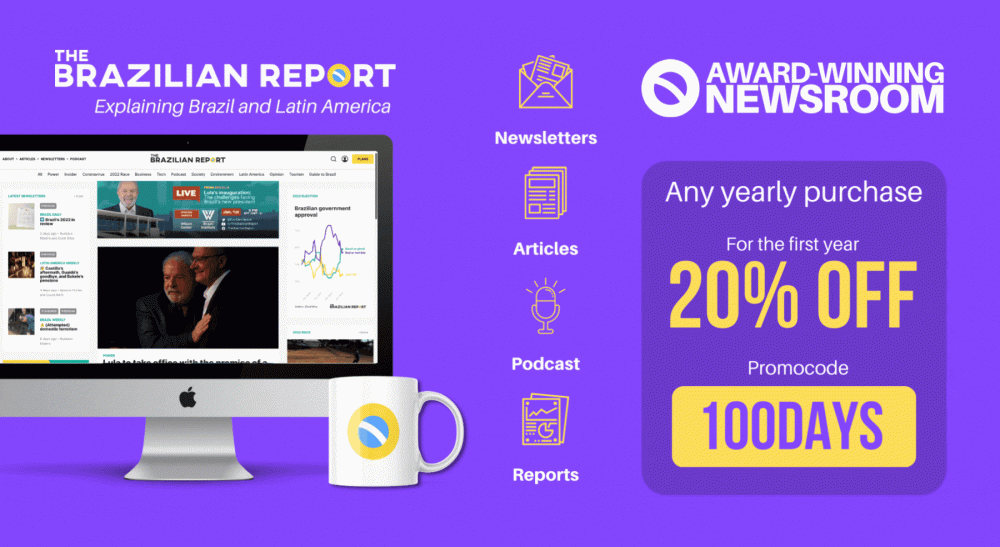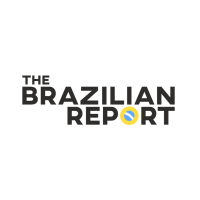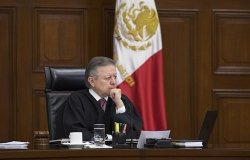Lula Finds Out that Latin America Is Not As He Left It
During trips to Argentina and Uruguay, Lula sought to restore Brazil's role as a regional leader, a plan he began in 2003. But Latin America has changed a lot since then.

Twenty years ago this week, having just been sworn in as Brazilian president for the first time, Luiz Inácio Lula da Silva gave a famous speech at the third World Social Forum in Porto Alegre, in the South of Brazil.
Before an audience of activists and members of social movements, Lula laid out his case for South-South diplomacy. "For 500 years, our country has looked to Europe. It's time to look to Africa and South America. It's time to establish new partnerships, so that we can be more independent, strengthen Mercosur, and establish a political force for negotiation."
Flash forward to 2023, and shortly after taking office as head of state for the third time, Lula attended the seventh Summit of the Community of Latin American and Caribbean States (CELAC) in Buenos Aires this week.
Lula's visit to the CELAC summit marked Brazil's return to the forum, after far-right former President Jair Bolsonaro acrimoniously withdrew the country from the organization in January 2020.
Less than 15 years old, CELAC has 33 members from across Latin America and the Caribbean, but crucially does not include the U.S. or Canada. As such, it seeks to provide a counterpoint to the Washington D.C.-based Organization of American States (OAS). And this week's event was to be the launch of Lula's leadership project for the region.
A region in chaos
At home, Brazil is only a few weeks removed from far-right putschist riots in its capital, in which the headquarters of Congress and the Supreme Court, as well as the presidential palace, were stormed and ransacked.
In addition, Lula fired his Army commander over the weekend, less than a month after appointing him. The Brazilian Army has been accused of standing by while coup-minded rioters camped outside barracks in major cities and ransacked government buildings in Brasília.
Similarly tumultuous scenes are playing out across the region. In Peru, President Pedro Castillo tried to illegally dissolve Congress in December and was ousted and jailed. His vice president and former ally, Dina Boluarte, has been governing in his place, relying on violent police repression to quell pro-Castillo protesters demanding immediate elections.
Lula chose not to mention the Peruvian crisis in his CELAC speech, although he noted that "the world is living in a moment of multiple crises: pandemic, climate change, natural disasters, geopolitical tensions, pressure on food and energy security, and threats to representative democracy."
"All this in the midst of unacceptable increases in inequalities, poverty, and hunger," he added.
The Brazilian president said that Latin America and the Caribbean is a "peaceful region that rejects extremism, terrorism, and political violence." Despite his conciliatory tone, Lula's words do not accurately reflect the past decade in Latin America.
Since the impeachment of President Fernando Lugo in Paraguay in 2012, the region has lurched from one political and economic crisis to the next. Among the most emblematic cases were Dilma Rousseff's ousting as president of Brazil in 2016, the military-backed coup in Bolivia in 2019, and the huge wave of brutally repressed protests in Chile that same year.
How to get Uruguay on board
Back in 2003, Lula promised to strengthen Mercosur, and he has done so again. But the trade bloc is in its most fragile state yet, largely because of disagreements with Uruguay, one of the alliance's four members.
Uruguay's center-right president, Luis Lacalle Pou, is desperate for Mercosur to become more market-friendly because of what he calls his country's "need to open up to the world."
Mr. Lacalle Pou is particularly keen on a free trade agreement with China, and his country is already in talks with the Asian giant. Indeed, the Uruguayan president has threatened to go ahead with a deal with China with or without the involvement of the rest of Mercosur — in violation of the 1991 Asunción Treaty.
As Lula's former foreign affairs minister and current special advisor Celso Amorim told journalists after the CELAC summit, Article 1 of the Asunción Treaty stipulates that all Mercosur members must adopt a common external tariff and a common trade policy with third-party countries or groups of countries.
After attending CELAC, Lula hopped across the Rio de la Plata to Montevideo to meet with Mr. Lacalle Pou. After their talk, Brazil's president mentioned that an agreement between Mercosur and China would be addressed "later," suggesting that negotiations will be much more cautious than Uruguay would like.
Although Mr. Lacalle Pou said the meeting with Lula "left [him] optimistic," he added that his country would not pause negotiations with China. "Brazil can go its way in parallel, and after that we will share everything that has been negotiated, and Uruguay can adapt to what Brazil proposes,” he said.
Four years of diplomatic neglect and retreat under the Jair Bolsonaro administration have left Brazil's role in Latin America weakened and uncertain. To restore the country's position as a regional leader, Lula will need to show his diplomatic chops and perhaps count on some of the political mystique from his first term in 2003.

The Brazilian Report
Like the content? Subscribe to the Brazilian Report using the discount code 100DAYS to get 20 percent off any annual plan.
About the Author

The Brazilian Report
Read More
Brazil Institute
The Brazil Institute—the only country-specific policy institution focused on Brazil in Washington—works to foster understanding of Brazil’s complex reality and to support more consequential relations between Brazilian and US institutions in all sectors. The Brazil Institute plays this role by producing independent research and programs that bridge the gap between scholarship and policy, and by serving as a crossroads for leading policymakers, scholars and private sector representatives who are committed to addressing Brazil’s challenges and opportunities. Read more

Latin America Program
The Wilson Center’s prestigious Latin America Program provides non-partisan expertise to a broad community of decision makers in the United States and Latin America on critical policy issues facing the Hemisphere. The Program provides insightful and actionable research for policymakers, private sector leaders, journalists, and public intellectuals in the United States and Latin America. To bridge the gap between scholarship and policy action, it fosters new inquiry, sponsors high-level public and private meetings among multiple stakeholders, and explores policy options to improve outcomes for citizens throughout the Americas. Drawing on the Wilson Center’s strength as the nation’s key non-partisan policy forum, the Program serves as a trusted source of analysis and a vital point of contact between the worlds of scholarship and action. Read more











